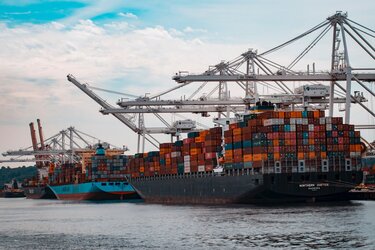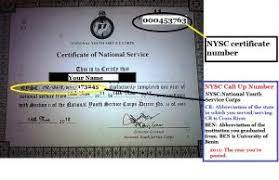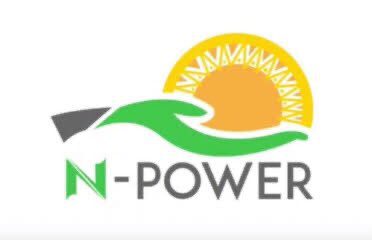Last updated on August 26th, 2022 at 03:04 pm
In international trade, some items cannot be imported from the producing country to another, Nigeria is no exception. There are some goods that are on the list of the Nigeria Customs Service, a security agency of the government that monitors the movement of goods into and out of the country, which is popularly called contraband.
You’ve heard about several horrible stories of Nigerian importers of rice and other consumables whose goods were impounded by the Customs officials.
It’s either the imported materials are prohibited or the bad eggs among the officials of Customs use their power to illegally seize goods.
When they illegally seize goods, they don’t clear the goods at their office, such items are either re-sold or converted for personal use.
But in most cases, they’re always happy to seize what Nigerians describe as contraband goods.
What is Import Prohibited Item In Relation To International Trade?
In international trade, import prohibited products are goods that are not allowed by law into a country.
In Nigeria, prohibited items are not allowed into Nigerian soil, they are not allowed into the market, access to such products is blocked by the government while anyone in possession of such items is could possibly face prosecution or jail sentence.
Examples of prohibited items in Nigeria include: Live or dead birds including frozen poultry, Cotrimoxazole tablets and syrups, and metronidazole tablets and syrups among others.
Top reasons a government may ban the importation of some goods are:
- To boost local production
- To complement a rapid economic recovery
- To increase job creation
Prohibition is divided into two:
- Temporary
- Permanent
Temporary Prohibition
An item could fall under the temporary prohibition list if the government plans to boost local production of a similar product.
For instance, the Buhari-led government banned the importation of rice into Nigeria as a means to boost local production, this falls under a temporary list because a succeeding government may revert such a decision.
Although, bags of rice are still being imported into Nigeria through the hundreds of illegal routes or Nigeria’s porous borders.
Permanent Prohibition
Importation of some items falls under the purview of the government, as such the government may list such items as a permanent prohibition.
In Nigeria for instance, AK47 is under the permanent prohibition list, though thousands of such dangerous military tools are found in the hands of criminal elements and terrorists who continue to kill and torment helpless Nigerians.
Import Prohibition List in Nigeria
Below is a list of customs contraband goods you can’t import into Nigeria
1) Tomato paste
2) Live or dead birds including frozen poultry
3) Refined vegetable oils and fats (includes mayonnaise).
Note:
Crude vegetable oil is NOT banned from importation.
4) Cane or beet sugar and chemically pure sucrose, in solid form in retail packs.
5) Cocoa butter, powder, and cakes.
6) Spaghetti/noodles.
7) Fruit Juice in retail packs
8) Ball Point Pens and parts including refills (excluding tip)
9) Bagged cement
10) Soaps and Detergents in retail packs only
11) Mosquito Repellant Coils
12) Used compressors and used fridges/freezers
13) Pork, beef, bird’s eggs, excluding hatching eggs
14) Telephone Re-charge cards and vouchers
15) Carpets and other textile floor coverings
16) Sanitary Wares of Plastics and Domestic Articles and Wares of Plastics (but excluding Baby Feeding bottles) and flushing cistern and waterless toilets.
17) Rethreaded and used Pneumatic tires but excluding used truck tires for rethreading of sized 11.00 x 20 and above
18) Corrugated Paper and Paper Boards, and cartons, boxes, and cases made from corrugated paper and paper boards, toilet paper, cleaning or facial tissue, excluding baby diapers and incontinent pads for adult use.
19) All types of Foot Wears, Bags, and Suitcases but excluding Safety Shoes used in oil industries, sports shoes, canvass shoes all Completely Knocked Down (CKD) blanks and parts.
20) Hollow Glass Bottles of a capacity exceeding 150mls (0.15 liters) of all kinds used for packaging of beverages by breweries and other beverage and drink companies.
21) Used Motor Vehicles above fifteen (15) years from the year of manufacture.
22) Furniture, but excluding baby walkers, laboratory cabinets such as microscope table, fume cupboards, laboratory benches, Stadium Chairs, height adjustments device, base sledge, seat frames and control mechanism, arm guide, and head guides.
Also excluded are; skeletal parts of furniture such as blanks, upholstered or unfinished parts of metal, plastics, veneer, chair shell, etc.
Also excluded are Motor Vehicle seats and Seats other than garden seats or camping equipment, convertible into beds.
23) Waters, including mineral waters and aerated waters containing added sugar or sweetening matter or flavored, ice snow, other non-alcoholic beverages, and beer and stout (bottled, canned, or otherwise packed, but excluding energy or health drinks (liquid dietary supplements).
24) Some medicaments
Import Prohibited pharmaceutical Products In Nigeria
Most times, the regulatory agencies call the attention of the government to pharmaceutical or beauty products that are not fixed to consumption of use.
One of them is the National Administration for Food, Drug, and Administration Control (NAFDAC) that regularly alerts the general public about the unsafe nature of an item.
Some of the contraband medical drugs are:
- Chloroquine tablets and syrups
- Magnesium trisilicate tablets and suspensions
- Piperazine tablets and syrups
- Paracetamol tablets and syrups
- Levamisole tablets and syrups
- Pyrantel pamoate tablets and syrups
- Cotrimoxazole tablets and syrups
- Metronidazole tablets and syrups
- Clotrimazole cream
- Waste Pharmaceuticals
- Ointments – penicillin/gentamycin
- Intravenous fluids (dextrose, normal saline, etc.)
- Haematinic formulations; ferrous sulphate and ferrous gluconate tablets, folic acid tablets, vitamin B Complex Tablets (except modified released formulations)
- Multivitamin tablets, capsules, and syrups (except special formulations)
- Aspirin tablets (except modified released formulation and soluble aspirin)
Permanent Prohibited Items
As pointed above, some banned products for import are temporary (due to a ruling government’s policy) while some are permanently not allowed into Nigeria.
The latest products and goods that are absolutely not allowed entry into Nigeria are:
1) Air Pistols
2) Airmail Photographic Printing Paper
3) Manilas
4) All counterfeit/ pirated materials or articles including Base or Counterfeit Coin of any Country
5) Beads composed of inflammable celluloid or other similar substances
6) Blank Invoices
7) Cowries
8) Coupons for foreign football pools
9) Exhausted tea or tea mixed with other substances
10) Implements appertaining to the reloading of cartridges
11) Indecent or obscene prints, painting, books, cards, engraving or any indecent or obscene articles
12) Matches made with white phosphorous
13) Materials of any description with a design which, considering the purpose for which any such material is intended to be used, is likely in – the opinion of the president to create a breach of the peace or to offend the religious views of any class of persons in Nigeria
14) Meat, Vegetables or other provisions declared by health officials unfit for human consumption
15) Pistols disguised in any form
16) Second-hand clothing
17) Silver or metal alloy coins not being legal tender in Nigeria
18) Nuclear Industrial waste a. other Toxic waste
19) Spirits
20) Spirits that contain
21) Containing more than forty-eight and one-half per centum of pure alcohol by volume except denatured, medicated and perfumed spirits, and such other spirits which the Comptroller-General, in his discretion, may allow to be imported subject such conditions as he may see fit to Impose
22) Weapons of any description which in the opinion of the Comptroller-General are designed for the discharge of any noxious liquid, gas or other similar substance and any ammunition containing or in the opinion of the Comptroller- General or adapted to contain any noxious liquid, gas or other similar substances
23) Piece goods and all other textiles including wearing apparel, hardware of all kinds, crockery and china or earthenware goods bearing inscriptions (whether in Roman or Arabic characters) from the Koran or from the traditions and commentaries on the Quran
Final Thought:
Before starting your importation business in Nigeria, try to familiarise yourself with products that are not allowed into the country in order to avoid your imported goods from being seized.
This isn’t about Nigeria, other countries like the United States, UK, Russia, and Canada do not allow the importation of certain products into their country.
Reference:
Featured image by Andy Li of unsplash.com








